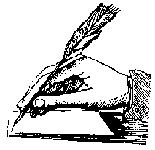
 |
 |

| Thursday, April 25, 2024 |
Miles from the Mainstream |
D.
R. ZUKERMAN, proprietor |
An Incisive Defense of President Trump's Foreign Policy
June 5, 2020 -- Probably Walter Mead Russell, in his Wall Street Journal column, May 26, had not read George Washington University Emeritus Professor Henry R. Nau's insight into President Trump's approach to foreign policy, else he would likely have mentioned in his column Prof. Nau's April 20 essay in The National Interest, "What Trump Gets Right About Foreign Policy." The Russell column was headed, "A Disruptive President in a Storm of Crisis, " and concluded, "will [the president] cling to the role of global disrupter in the face of the greatest storm since World War II?" Professor Nau presents a strong case that the president's foreign policy represents overdue reforms, not disruption. Prof. Nau contends that rather than "destroying the postwar global order, [the president] may be saving it." The professor (who was a member of the National Security Council during President Reagan's first term) makes the point that "not every effort to slow down and recalibrate globalization is an attack on free trade and democratic peace." He points out that the president's call on our NATO allies to contribute more for the common defense is justified, noting that Europe is as much of a world power as is the United States. He asks, why should the U.S., with a GDP of 50 percent of the NATO nations incur 70 percent of the NATO budget. He also asks, with Europe closer to the Middle East and Africa, why does the United States have 5,000 troops in Iraq, while Germany has 120 and France 400? He further notes that both the United States and Europe share the same amount of the world economy -- 22 - 24 percent. Add Japan's share of the world economy and our allies have a larger percentage than the U.S., he further observes. Professor Nau sees President Trump's aim not of dismantling the global order, but getting it into better balance, with our allies taking on more of their share of the burdens of common defense and trade, and getting China "to accept the basic rules of a market-oriented world economy," The professor points out that past presidents talked about getting allies to act accordingly, but never followed up; consequently our allies did not take seriously previous White House calls for reforming the global order. LPR is not aware that the critics of President Trump's calls - and serious threats of follow-up for reform of NATO and trade reform - mention the statistics that demonstrate that our allies have been resisting their fair share of the responsibilities of a true ally. He cautions that if such resistance continues, it is not just the president, but the American people who will turn inward. The future of globalism, Professor Nau comments, will depend more on the actions of our allies, not on what the president does. (Professor Nau regards President Trump as a "nationalist," but also a "realist." |
Professor Nau acknowledges that the president has a "bombastic style," but suggests that he should be judged by his actions, which may well "salvage the international world order and conserve the democratic peace for decades to come." "[K]eep you eye on the results," the professor advises, "not the rhetoric." He concludes, "Sometimes, appearances may deceive, and Trump's foreign policy thus far is much better than it may appear." And as this is a conservative populist website, LPR appreciates this observation from Professor Nau, "The populist backlash is in fact a democratic check on cosmopolitan elites at home and abroad who value their own self-touted expertise more than their accountability to democratic citizens." Professor Nau briefly refers to the current pandemic in this sentence: "The Covid-19 crisis, to be sure, adds a new chapter to Trump's legacy." LPR would add that the "cosmopolitan elites" have seized on the coronavirus to inflate further their feelings of "self-touted expertise." (LPR proposes the term "superciliosis" to describe the "illness" of persons afflicted with an inflated sense of "self-touted expertise.") And, of course, such feelings of "expertise" were placed before the country to behold when testimony was heard from foreign policy bureaucrats, at last fall's impeachment hearings, bureaucrats who apparently believed that they, and not the elected president, made foreign policy. Walter Mead Russell commented in his May 26 Wall Street Journal column that foreign leaders are losing respect for the Trump administration because they "have concluded that Mr. Trump's policies don't add up." Professor Nau makes it plain, however, that in considering the Trump foreign policy, one and one still equal two. Our allies would disregard this elementary arithmetic to their peril.

|
|
